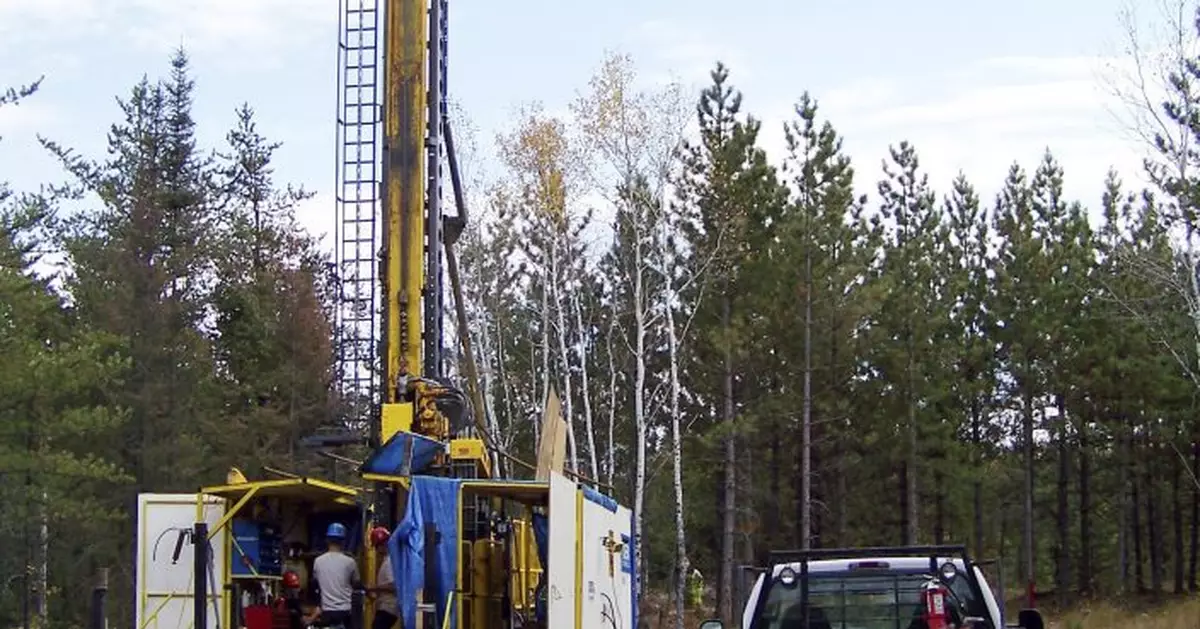The Biden administration on Wednesday canceled a move by former President Donald Trump to renew mineral rights leases for a proposed Twin Metals copper-nickel mine in northeastern Minnesota.
Trump had signed an order a month before the 2020 presidential election declaring a national emergency over the country’s reliance on imported metals used to manufacture computers, smartphones, batteries for electric cars and other items.
The reversal by Biden on the two leases follows an October decision to move forward with a study that could lead to a 20-year ban on mining upstream from the Boundary Waters Canoe Area Wilderness.
Twin Metals said in a statement that the decision was political and the company will not let it kill the project.
“The federal government’s reversal of its position on the mineral leases that Twin Metals Minnesota and its predecessor companies have held for more than 50 years is disappointing, but not surprising given the series of actions the administration has taken to try and shut the door on copper-nickel mining in northeast Minnesota,” the company said. “We will challenge this attempt to stop our project and defend our valid existing mineral rights.
The fight over the proposed Twin Metals mine, as well as the proposed PolyMet mine, has always had political implications. Republicans have accused Democrats of sacrificing badly needed jobs in northern Minnesota, just as supply chain woes are underscoring the need for materials used in batteries and computer chips.
Republican U.S. Rep. Pete Stauber, whose district includes the proposed mining area, tweeted that the move was “terrible news for Minnesota miners and our economy.”
”When will the Biden Administration start standing up for our blue collar workers?” Stauber said.
Democratic U.S. Rep. Betty McCollum, who has introduced a bill to block copper mining on federal lands in the Rainy River watershed, most of which is contained within the Boundary Waters, released a statement calling the decision “a victory for sound science and protecting a precious and irreplaceable natural resource.”
Interior Secretary Deb Haaland said her department must be consistent in how it applies lease terms and the lease renewals violated “applicable statutes and regulations.”
Twin Metals, which is owned by the Chilean mining giant Antofagasta, submitted its formal mine plan to federal and state regulators in 2019. The company said its design would prevent any acid drainage from the sulfide-bearing ore and protect the wilderness from pollution.
Environmental groups disputed that claim and challenged the lease renewals in court.
Collin O’Mara, present and CEO of the National Wildlife Federation, applauded the move as way to safeguard essential habitats and protect jobs and economic benefits in the Boundary Waters, which is known for camping, hiking, paddling, fishing and hunting.
“The Boundary Waters are a natural treasure that is simply too important to risk — and the costs for people and wildlife too steep,” O’Mara said.
Twin Metals is not connected to the proposed PolyMet Mining Corp.'s project at nearby Babbitt and Hoyt Lakes, which is currently mired in legal challenges and regulatory proceedings. PolyMet’s majority shareholder is Swiss commodities giant Glencore.


